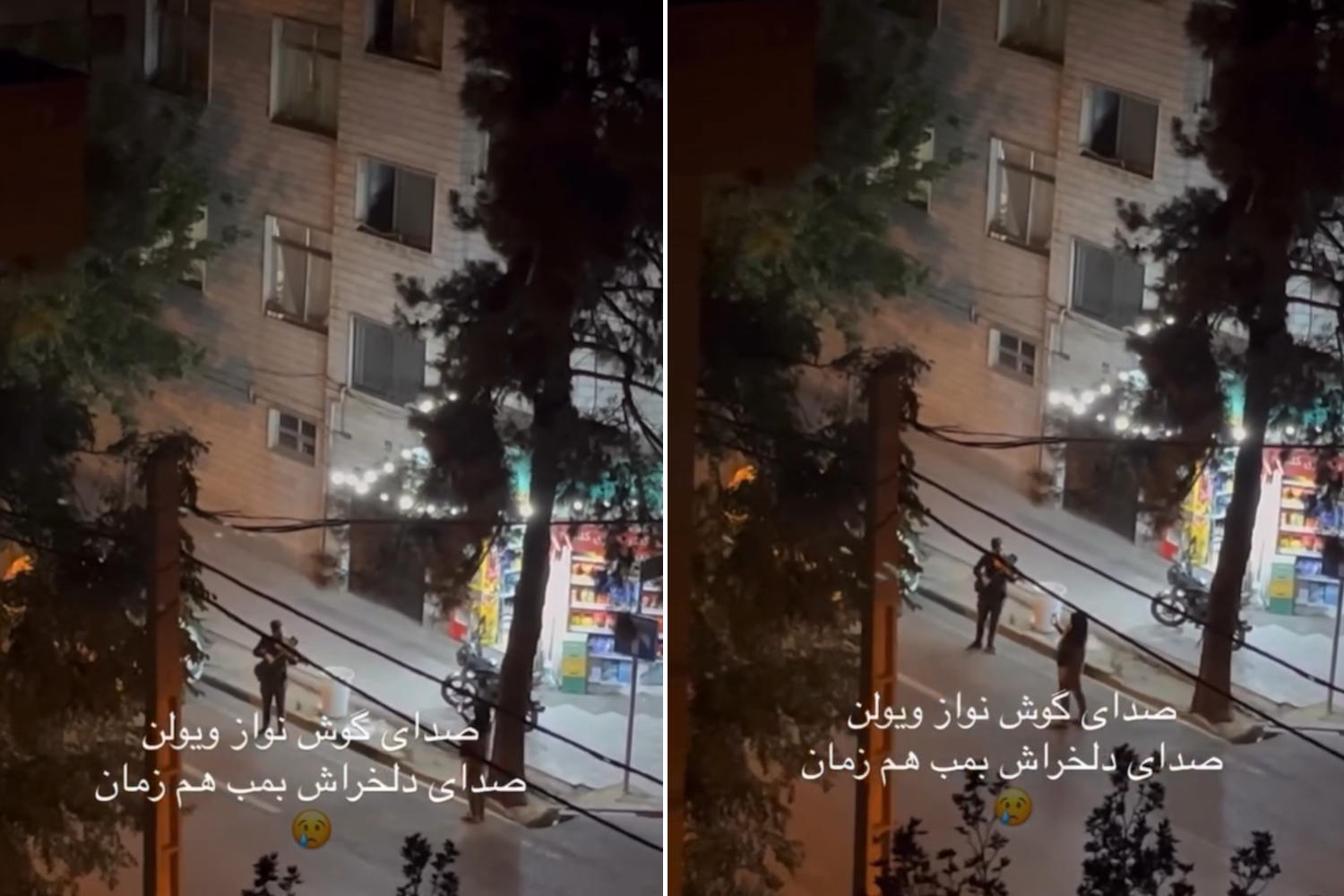In the midst of the bombings in Tehran, Amir Mazrouei used his violin to become the voice of Iranian resistance, showing how art can endure in the face of violence.

@farkhondeh.kakavand/Instagram
In the midst of the bombings in Tehran, an unexpected form of resistance emerged. Amidst the sound of Israeli bombs, one man chose to respond not with weapons, but with his violin. Amir Mazrouei, a name now synonymous with Iranian cultural resistance, played his instrument amidst the ruins of buildings and skies streaked with missiles, giving a voice to the silenced. His act of courage, performed in the heart of devastation, has touched hearts worldwide and quickly went viral on social media.
As Tehran’s streets were bombarded, Mazrouei stepped outside, violin in hand, and began to play. His music sought to drown out the sound of explosions, offering emotional refuge in the chaos, and sending a message that a people’s identity cannot be destroyed by violence. The gesture was driven by his belief that “You have no idea who you’re dealing with. You will never break the spirit of Iran.”
These words, spoken calmly, accompanied an image that transcended borders: a solitary man with a violin facing off against F-35 fighter jets, precision bombs, and widespread destruction. It was the universal language of music that spoke louder than propaganda, fear, and hate.
War outside, music within
Mazrouei’s performance occurred within the dramatic context of the conflict that erupted on June 13, with the Israeli Operation Rising Lion targeting strategic locations in Iran. The assault led to hundreds of civilian deaths. Sirens, evacuations, and fear took hold of Tehran.
Independent sources report that over 600 people have died in Iran, most of them civilians, while dozens of casualties were also reported in Israel as Tehran quickly retaliated. Iran launched more than 400 ballistic missiles and 1,000 kamikaze drones at Israeli targets. One of these strikes hit the Soroka Medical Center in Beersheba, while other hospitals near Tel Aviv and Jerusalem also sustained significant damage.
Amid this apocalyptic backdrop, Mazrouei’s violin continued to play, reminding everyone that art survives barbarity, and that music can be a powerful act of resistance. In a city burning with destruction, his notes became a call to remembrance and hope. For many, his melody represented a form of silent prayer. For others, it was a quiet protest. But for all, it became a truth: even when everything seems lost, beauty will find a way to be heard.
